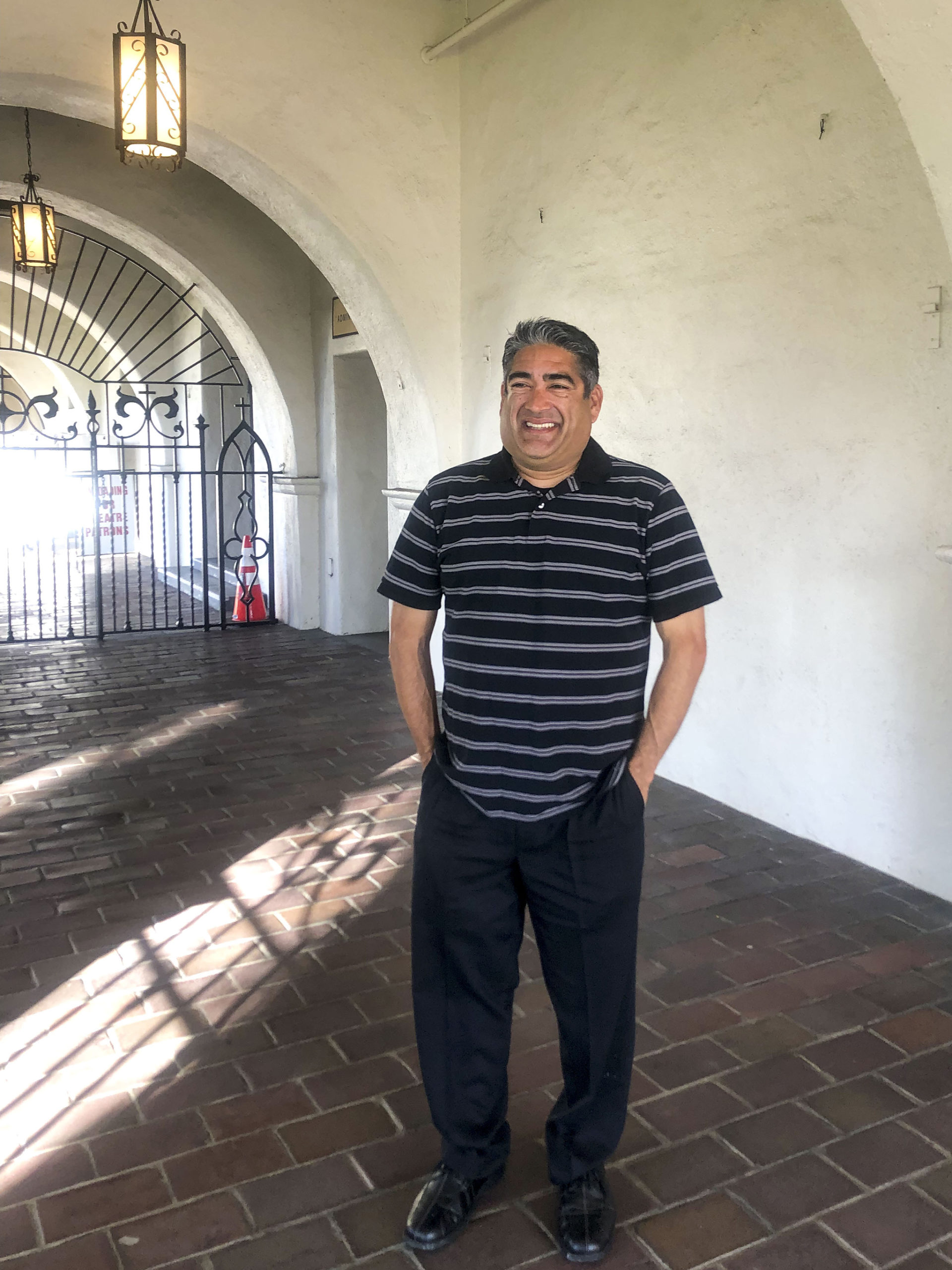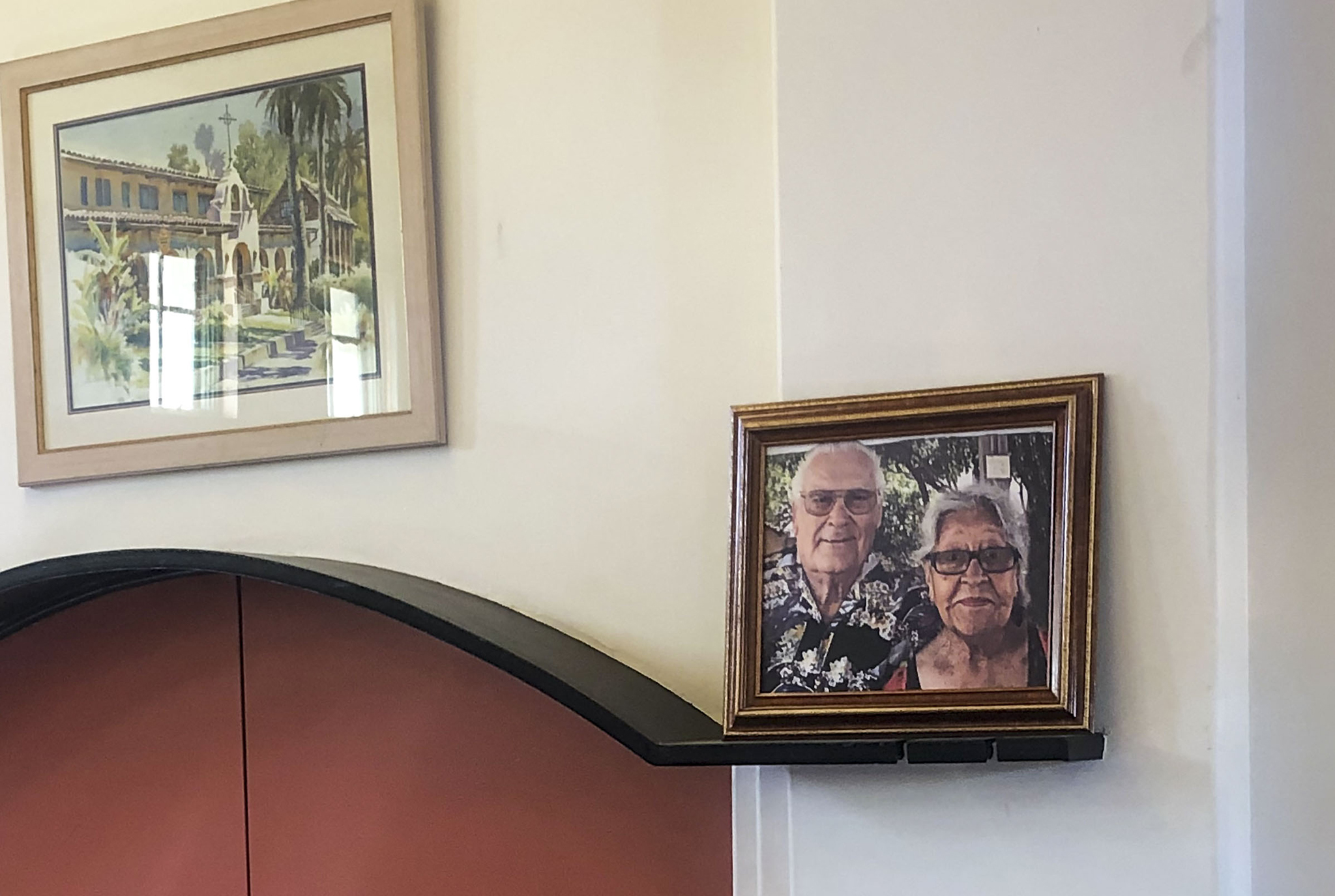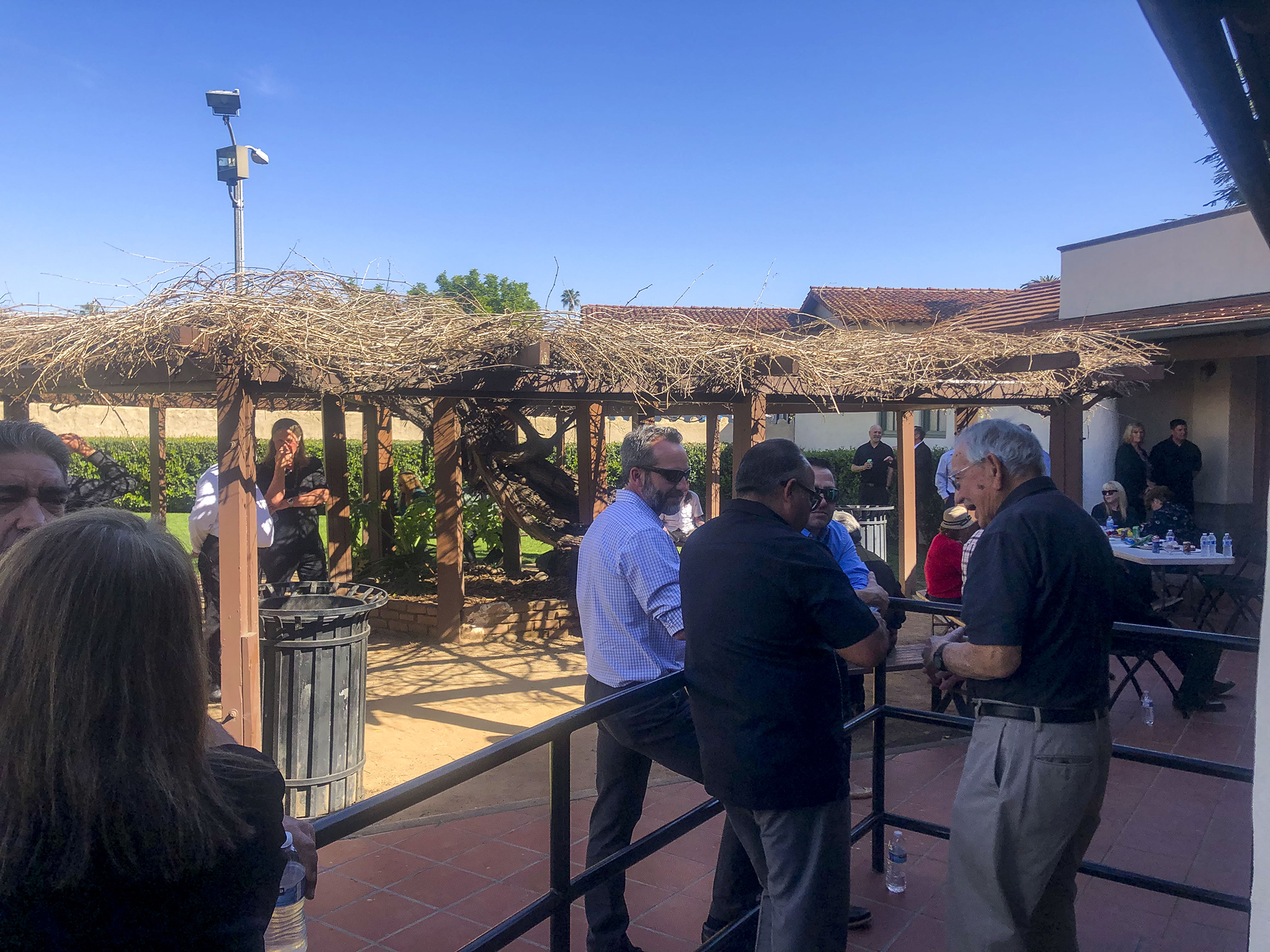
The impact of climate change
We are finding, coaching and training public media’s next generation. This #nprnextgenradio project is created in southern California, where five talented reporters are participating in a week-long state-of-the-art training program.
In this project we are highlighting the experiences of people whose lives are being affected by climate change.
Chelsea Healy speaks with Matthew Teutimez, a biologist from the Gabrieleño Band of Mission Indians, Kizh Nation. He is drawing on ancestral knowledge to help restore vital ecosystems damaged by climate change in Southern California, and is working to pass down his cultural heritage to future generations.
Illustration by Lauren Ibañez
Indigenous biologist passes on cultural heritage to address climate change
Matthew Teutimez is drawing on ancestral knowledge to help restore vital ecosystems and help pass down traditional knowledge to future generations.
Teutimez is a biologist from the Gabrieleño Band of Mission Indians, Kizh Nation. In his line of work, he is drawing from his ancestral knowledge to protect endangered species, with a focus on native birds in Southern California.
“The way we, as a tribal nation, feel we can prepare for [climate change] is to return to this value system of the land helping to protect us, the land helping to provide for us,” he said.
He has studied the behavior of birds and fish in the Los Angeles region and how they are affected by heat and pollution. He is concerned that nitrogen fertilizers are running off into the harbors and contributing to algae blooms, which harms the anchovies that birds eat, forcing them to seek food elsewhere.
Native American biologist Matthew Teutimez seeks to heal the land

Matthew Teutimez, tribal biologist with the Kizh-Gabrieleño Band of Mission Indians, stands outside the San Gabriel Mission. March 14, 2022. Photo by Chelsea Healy
Currently a member of the California EPA Tribal Advisory Committee, Teutimez is the tribe’s specialist in ethnobotany and a consultant in the LA region on efforts to restore and protect endangered species like steelhead trout.
“Plants and animals have tons of knowledge and wisdom, so they’re always included in our cultural stories,” Teutimez said. “They’re the main characters because they’re the ones that give us the way to live a healthy and robust life on this landscape.”
Teutimez said a direct effect of climate change is the decimated steelhead trout populations native to the southern California region — it’s a fish that can live in freshwater and saltwater. The Gabrieleño people use this nutritious fish as a part of their diet.
“They were natural components of our water systems. There’s even accounts, up until the twenties in Topanga Canyon and all these other canyons of fishing these trout,” he said. “I’ve never known our landscape to be able to provide for this fishing recreation that is accounted for in these stories from the twenties, thirties, and forties.”
Teutimez recalls his great aunt Lorraine Nava gathering locally grown vegetables, like different types of lettuces and potatoes — both of which can no longer be found in Los Angeles.
Nava inspired Teutimez by passing on stories and natural medicines made with wild-grown produce that could help heal stomach aches and pain.
The Gabrieleño people are known as “the people of the willow house” because they made thatched huts out of willow branches. Teutimez learned from his family to use the natural medicine from willow trees as a pain remedy.
“The prominent history of the landscape of this area is all tied in with our tribal lineage and our tribal history,” Teutimez said. “I’ve been fortunate to be born into this family that still connects with the cultural heritage of this land.”
Teutimez says many of our current environmental problems stem from man’s efforts to dominate the landscape.
“We’re noticing all the fires, all the floods, all of these natural disasters that are occurring on our landscape are a direct result of the land management that has happened from that sort of attitude,” he said.
Teutimez is currently venturing to invest in plots of land to continue the growth of the native plants that are endangered in the area. He plans to draw from the knowledge of the elders and his background in biology to assist in the restoration of the land.

A photo of Ruben Lozano Nava and Lorraine Rose Nava hangs on the wall in the Grapevine Room at the San Gabriel Mission. March 14, 2022. Photo by Chelsea Healy

Family and friends of Lorraine Rose Nava gather around the Old Mother Grapevine, planted in 1861, at the San Gabriel Mission. March 14, 2022. Photo by Chelsea Healy
“Our goal is to try and restore plants that can provide these gifts through medicines,” Teuitmez said. “The community is not only going to be taking care of the land. They’re also going to be getting knowledge and resources.”
Teutimez is working on setting up youth camps and ceremonies that will pass down cultural knowledge to the next generation. His tribe holds coming-of-age ceremonies at a sacred rock covered with Native American markings in the San Gabriel Canyon. The rock “helps explain our appreciation of the landscape and what it gives us,” he said.
The Gabrieleño Band of Mission Indians, Kizh Nation is not a federally recognized tribe but has sought recognition through federal legislation and still considers itself a sovereign nation.
“As a tribal nation, we’re trying to help our community and landscape,” Teutimez said. “And that’s our hope: to help heal the land and heal our communities.”
NPR’s Next Generation Radio acknowledges the Gabrielino/Tongva peoples as the traditional land caretakers of Tovaangar (the Los Angeles basin and So. Channel Islands). We pay our respects to the Honuukvetam (Ancestors), ‘Ahiihirom (Elders) and ‘Eyoohiinkem (our relatives/relations) past, present and emerging.
